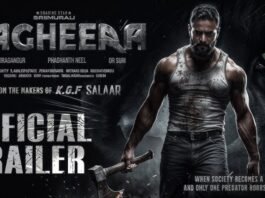The only place in the Disney media kingdom where you could possibly get away with calling a 22-year-old woman a “White b—-” is on ESPN on weekday afternoons.
That is where “The Pat McAfee Show” lives and is blasted all around North America. It is the spot on Monday where he decided to open his show by using that phrase in defense of Caitlin Clark and the uproar over perceived cheap shots she is receiving as a WNBA rookie that has led to a discussion about the roles race and stardom play in Clark’s treatment in the league and in the media.
McAfee, the talented, foul-mouthed talk show host/”College GameDay” analyst/WWE commentator, decided that the best way to put an exclamation mark on an opening monologue was by turning to the b-word:
“I would like the media people that continue to say, ‘This rookie class, this rookie class, this rookie class,’” McAfee said. “Nah, just call it for what it is: There’s one White b—- for the Indiana team who is a superstar.”
The network declined comment. McAfee later apologized in a post on X, saying he shouldn’t have used the term.
“My intentions when saying it were complimentary just like the entire segment,” he wrote, “but, a lot of folks are saying that it certainly wasn’t at all. That’s 100% on me and for that I apologize… I have sent an apology to Caitlin as well.”
Let’s call it for what it is: If you went down the halls of Bristol on Monday and described anyone that way, ESPN’s HR department would remind you of every video on harassment you are required to watch. You would likely be suspended or worse.
ESPN can hide behind the fact that McAfee is not an employee. It pays him in excess of $17 million per year but leases his show, with McAfee retaining creative control. McAfee pays all his people, including recurring freelancers, like Aaron Rodgers. But this was on ESPN’s air. The technicalities of the arrangement don’t change that.
The internet, which is where McAfee rose, first at Barstool Sports and with an incessant social media presence, has cruder sensibilities than those extolled by a Disney-owned company. McAfee may not have intended any harm by calling Clark a “White b—-,” and he can point to a WNBA player’s apparent use of the same word, but he is not the one who decides who is harmed.
The topic of Clark’s popularity has been growing after the Chicago Sky’s Chennedy Carter fouled Clark from behind in a game Saturday, a flagrant foul that has received criticism from Carter’s own coach. Carter looked as if she called Clark the b-word just before doing it, too.
But talking on the court, WNBAer to WNBAer is different than shooting your mouth off on the airwaves. It is not the same.
McAfee wasn’t alone among ESPN stars coming up short when discussing the WNBA on Monday. Preceding McAfee on “First Take,” Stephen A. Smith got into a back-and-forth with the basketball analyst Monica McNutt.

Caitlin Clark has helped give the WNBA a surge in popularity. The conversation around it on ESPN on Monday missed the mark. (Luke Hales / Getty Images)
Smith, ESPN’s $12 million per year man, was debating McNutt about Clark when Smith said, “Who talks about the WNBA? Who talks about women’s sports more than ‘First Take?””
McNutt sounded as if she was trying to be as respectful as possible to Smith, but she could not help but throw down a dunk over him.
“Stephen A., respectfully, with your platform you could’ve been doing this three years ago if you wanted to,” McNutt said.
Smith looked as if he had been hit with a left hook, forced to say, “Wow.”
For ESPN, the discussions about Clark gave the network a bridge topic from Smith’s highly rated “First Take” to McAfee’s program, which continues to struggle on linear TV, again losing nearly 50 percent of Smith’s audience for the last month (501,000 to 261,000), according to sources with access to the Nielsen numbers. ESPN likes to fold McAfee’s YouTube views into its ratings, which might have some credence, but it differs from how they are computed officially.
And McNutt was right about the history. Few people were talking as substantially about the WNBA on live television until the anticipation of Clark’s arrival.
Every sport wants to be talked about by the Smiths and McAfees of the world on ESPN. It’s the center of daily sports, and the WNBA is now a regular topic in a way it hasn’t been in the past, even on the network that has more invested in women’s sports on television than anyone else.
McAfee apologized. It was the right thing to do. Now, we’ll find out if ESPN’s top stars learned anything.
(Top photo of Pat McAfee: Ron Hoskins / NBAE via Getty Images)




